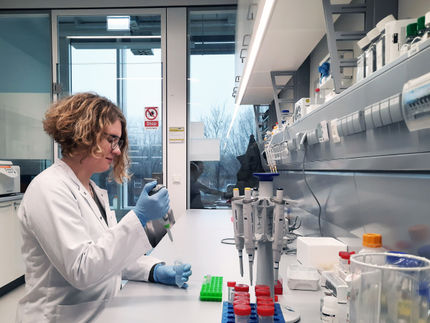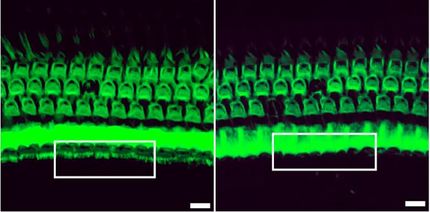Novel epigenetic markers of melanoma may herald new treatments for patients
Advertisement
melanoma is the most serious form of skin cancer, diagnosed in more than 50,000 new patients in the United States annually. While the rate of incidences continues to rise, survival rate has not improved and the race is on to find the genetic and cellular changes driving melanoma and to devise new means of detection and treatment. In a study published in Genome Research, scientists have mapped chemical modifications of DNA in the melanoma genome, finding new markers that will help develop more effective treatment strategies to fight this disease.
In addition to mutations to the DNA code that can cause malignancies, epigenetic changes – alterations to the chemical modifications of DNA that regulate genes – are frequent in a number of diseases, including cancer. If the normal epigenetic patterns that regulate gene expression are disrupted, cellular functions can go awry and lead to disease.
In this work, researchers led by Drs. Ruth Halaban and Sherman Weissman of Yale University investigated genome-wide epigenetic changes, termed DNA methylation, in melanoma cells. “This is of particular importance in melanomas, because a major etiological factor is sun exposure,” Halaban said, explaining that inflammation and reactive oxygen species caused by the sun can produce epigenetic changes and mutations. Halaban added that because DNA methylation can be reversed, it is an attractive target for cancer therapy.
The group surveyed DNA methylation at gene regulatory regions, known as promoters, in both normal melanocytes and melanoma cells. They found 76 promoters with altered methylation patterns in melanomas, most of these showing increased methylation compared to normal. Promoter methylation is correlated with repression of the downstream gene, and this finding is consistent with other research indicating that cancer cells are using DNA methylation to turn off genes that normally inhibit malignancy.
The team then focused on five genes in particular, three of which had not been implicated in melanoma until now. In clinical specimens, methylation of these promoters was predominantly detected in advanced-stage tumors, suggesting that these markers will be useful for monitoring tumor progression. Furthermore, they found that by treating melanoma cells with a drug called decitabine, an inhibitor of DNA methylation, these genes could be reactivated. Decitabine is effective in some patients suffering from cancers such as acute myeloid leukemia and chronic myeloid leukemia, so the identification of these methylation markers is promising for new clinical trials evaluating the efficacy of treatment of melanoma with this drug.
Relapse of melanoma is extremely difficult to predict, and Halaban emphasized that inaccurate estimation of the malignant potential of lesions can have dire consequences for patients. However, the authors are hopeful that these epigenetic markers may provide a better method for determining the aggressiveness of the disease and for setting a course of treatment.
Halaban expects that by combining their method for finding methylation markers with the latest DNA sequencing technologies, researchers will be able to uncover genes where an interaction between genetic mutations and epigenetic changes play a role in the development of melanoma, and perhaps other cancers. With this information in hand, researchers can then devise even more effective strategies to combat the disease.
Original publication: Koga Y, Pelizzola M, Cheng E, Krauthammer M, Sznol M, Ariyan S, Narayan D, Molinaro AM, Halaban R, Weissman SM; "Genome-wide screen of promoter methylation identifies novel markers in melanoma."; Genome Res 2009.




























































